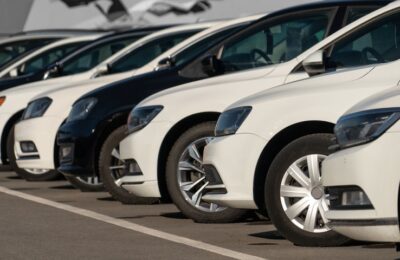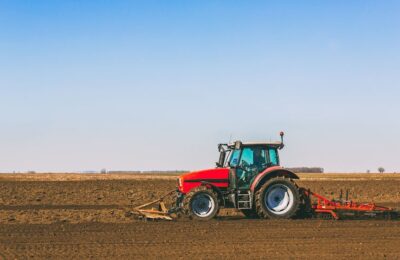Today’s the day. It’s Labour’s first Budget for 15 years. And given the number of time government ministers have uttered the phrase ‘difficult decisions’, many of us have awaited the 2024 Autumn Budget with some trepidation.
While Labour has promised a Budget that protects ‘working people’, there’s been plenty of ambiguity about what that phrase actually means. Prime Minister Sir Keir Starmer has defined a working person as someone “goes out and earns their living, usually paid in a sort of monthly cheque”. When later asked whether this includes people who get some income from things like shares and property, he said “that wouldn’t come within my definition”. A spokesman subsequently said that those with a small amount of savings could be defined as working people.
For weeks, this Budget has been trailed as a tax raising one. In the government’s defence, it claims it needs to plug a £21.9 million ‘black hole’ in the country’s finances. It has already announced measures to help achieve this, including slashing eligibility for Winter Fuel Payments, slapping VAT on private school fees and imposing a higher energy windfall tax. On the flipside, it has announced increases in the minimum wage, public sector salaries and the state pension.
So, what is actually in the 2024 Autumn Budget? Which taxes will go up, what cuts will be made, and who will be the overall winners and losers? Below, we summarised the key announcements as they were made by Chancellor Rachel Reeves.
Key points from the 2024 Autumn Budget
In her introduction to the Budget, Rachel Reeves said it would raise taxes by £40 billion.
Major announcements are arranged by category.
National Insurance
- Employers’ National Insurance contributions to go up 1.2 percentage points to 15% from 2025.
- Secondary threshold for Employers’ NI contributions (the threshold at which it gets paid) to drop from £9,100 to £5,000.
Income Tax / NI personal thresholds
- No extension of the freeze on the Income Tax / NI thresholds. Currently frozen until 2028, they will be uprated in line with inflation from that year.
Capital Gains Tax
- The lower rate of CGT will rise from 10% to 18%.
- The upper rate of CGT will rise from 20% to 24%.
- The upper and lower rates of CGT on residential property will remain at 18% and 24% respectively.
Capital Gains Tax for carried interest
- Capital Gains Tax for carried interest – a performance related reward for fund managers – will be increased to 31%.
Business Asset Disposal Relief (for CGT)
- The Business Asset Disposal Relief lifetime limit remains at £1 million.
- Business Asset Disposal Relief rates to remain at 10%, going up to 14% in April 2025 and then to 18% for 2026/7.
Stamp Duty Land Tax
- SDLT surcharge for second homes / buy-to-let properties to go up from 3% to 5%. This will apply from 31st October 2024.
Inheritance Tax
- All IHT thresholds to remain frozen until 2030.
- Inherited pensions to be brought into IHT from April 2027.
- A 50% relief will apply to shares on the Alternative Investment Market (AIM) and similar markets, at an effective tax rate of 20%.
Agricultural property relief / business property relief
- The first £1m of combined business and agricultural assets will continue to attract no IHT. A 50% relief will apply to assets over £1m IHT at an effective rate of 20%.
Business rates
- 40% relief on bills for retail, hospitality and leisure businesses, up to a cash cap of £110,000 per business
Non-dom tax regime
- From 6th April 2025, the non-dom tax regime will be scrapped. It will be replaced by a residence-based regime ‘designed to bring the best talent and investment to the UK’.
‘Sin’ taxes
- Tobacco duty escalator renewed for this parliament at the rate of RPI inflation plus 2%.
- A one-off increase on duty on hand rolling tobacco of 10%.
- A flat-rate duty on all vaping liquid from October 2026.
- Soft drinks industry levy to rise.
- Duty on draught alcholic drinks to be cut by 1.7 percentage points.
Fuel duty
- Fuel duty to be frozen for the next two financial years
Air passenger duty
- Air passenger duty to increase by no more than £2 per passenger for economy short haul flights. Rates for private flights to rise by 50% per passenger.
VAT and private schools
- VAT on private school fees to go ahead from January 2025.
- Business rates relief for private schools to be removed from April 2025.
Tax revenues
- Investment to modernise HMRC systems and recruit 5,000 additional compliance staff.
- Appointing a COVID Corruption Commissioner to recoup fraudulently claimed money from support schemes.
Wages
- National Living Wage to increase by 6.7% to £12.21 per hour.
- National Minimum Wage for 18 to 20 year olds to increase from £8.60 to £10.00 per hour.
- Apprentices to get a pay rise from £6.40 to £7.55.
Pensions
- Basic and new state pensions uprated by 4.1% in 2025/26/
- Pension credit standard minimum guarantee to rise by the same amount.
Benefits
- A crackdown on fraud in the benefits system, particularly by criminals, including powers to access bank accounts directly. This is expected to save £4.3 billion.
Compensation schemes
The government has earmarked money for those affected by two major scandals.
- £11.8 billion compensation set aside for victims of the infected blood scandal
- £1.8 billion compensation reserved for victims of the PO Horizon scandal
Investment and fiscal targets
In addition to the announcements above, the Chancellor announced a wide variety of investment packages and fiscal targets. We will be looking at these in more detail over the coming days and weeks and will update you with any information likely to be of interest to you.
About Ben Locker
Ben Locker is a copywriter who specialises in business-to-business marketing, writing about everything from software and accountancy to construction and power tools. He co-founded the Professional Copywriters’ Network, the UK’s association for commercial writers, and is named in Direct Marketing Association research as ‘one of the copywriters who copywriters rate’.












